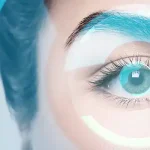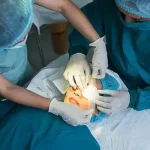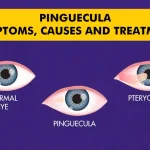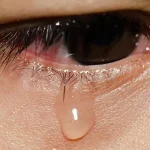Have you ever considered the cause of your puffy eyes or your eyes looking like they have popped out? It might be TED, or thyroid eye disease, which can lead to serious issues like light sensitivity and vision loss! The tissues of the eye can be harmed by thyroid eye disease. Similar symptoms to those of the autoimmune ailment Graves disease, which can affect your eyes, are produced by this syndrome.
So, let’s talk about the meaning, causes, symptoms, and treatments of thyroid eye disease to learn more about it.
Thyroid eye disease – An autoimmune disorder you should know about
Thyroid eye disease or Graves’ eye disease is an immune system disorder. Patients with Thyroid illness frequently experience thyroid eye disease. It is an autoimmune ailment that can last for months or decades depending on the person and occurs when your body’s defense mechanism attacks your body. It may harm the muscles and other tissues around your eyes. Your eye muscles, tear glands, and fatty tissues behind the eyes are all significantly impacted by the inflammation in this illness.
Such inflammation can cause the eyeballs to protrude from their sockets and, in rare circumstances, can cause severe vision loss. It also produces puffiness and other eye problems. It usually runs in families and is more common in women and smokers. This disease is known by many different names, including:
- Graves orbitopathy
- Graves’ Ophthalmology
- Thyroid associated orbitopathy
Causes of thyroid eye disease
Although the specific causes of thyroid eye disease are unknown, it is believed to be brought on by an inappropriate immune system that targets healthy eye tissues. Your immune system plays a crucial role in defending your body from external diseases and viruses that might make you ill. Your body begins fighting your own cells and tissues when it believes they are external substances in and around your eyes. Your eyes enlarge and bulge as a result of this.
Unfortunately, specialists and researchers still don’t know what triggers this immunological reaction. If you have a family history of thyroid eye disease or have low blood levels of the mineral selenium, you may be more susceptible to developing thyroid eye disease. The chance of acquiring thyroid eye disease is higher among smokers.
Thyroid eye signs and symptoms
Thyroid is a tiny hormone-secreting gland in the neck that can generate either too much or too little thyroid hormone, which can cause several different symptoms in the body. While some of these symptoms are mild, others are rather serious. A few of them are listed below:
- Dry eyes
- Difficulty wearing contact lenses
- Double vision
- Irritation or grittiness in the eyes
- Excessive tearing
- Bulging eyes
- Redness or inflammation
- Light sensitivity
- Swelling of the orbital tissues
- Pressure or pain in the eyes
- Difficulty closing the eyes
The diagnosis of thyroid eye disease
Contact your primary physician if you have a thyroid disorder or any of the above thyroid eye disease symptoms. Your physician could advise that you visit an eye doctor. Ophthalmologists with expertise in thyroid eye disease will be able to assess your thyroid eye disease signs and symptoms. Thyroid eye disease is diagnosed using specific symptoms, a thorough patient history, clinical evaluation, and a range of specialized tests. They will recommend you for a course of treatment after the complete checkup.
If your doctor feels you have thyroid eye disease then the thyroid hormone and thyroid stimulating hormone levels in the bloodstream will be determined by a quick blood test known as a thyroid function test. Detecting thyroid antibodies, which would signify autoimmune thyroid disease, can also be done by blood tests.
A computerized tomography (CT) or magnetic resonance imaging (MRI) scan of the eyes may be performed to check for any swelling of the tissues behind the eye if the cause of the signs and symptoms is uncertain.
Thyroid eye disease treatment
Treatment may need to be planned systematically and thoroughly by a team of specialists, including psychologists, general physicians who specialize in the treatment of eye disorders, including eye doctors with experience in treating thyroid eye disease.
Some patients with mild thyroid eye disease may get supportive care in the form of ointments, artificial tears, prisms that are fitted to spectacles, or dark shades to reduce light sensitivity. Double vision can be cured with prisms or by using an eye patch. Eye specialists advise using lubricating eye drops for a mild case.
If you experience severe symptoms, your doctor might recommend corticosteroids like prednisone to lessen swelling. Patients with moderate-to-severe illness may be given corticosteroids that reduce swelling and inflammation but have no effect on diplopia and proptosis.
Some people with moderate to severe illnesses may need surgery. Orbital decompression surgery may be suggested in a limited percentage of patients for thyroid eye disease treatment. Despite the possibility of experiencing double vision, this can improve your vision. Surgery is generally advised to be postponed until the disease’s aggressive phase has passed. In the active phase, surgery can be required if medical professionals believe that the disease’s progression puts the patient’s vision at risk.
Before deciding on any course of therapy, always consult a qualified eye care practitioner. Regular eye exams are also essential for early detection.
Why CFS?
At CFS, we provide the best services for the analysis of the problem as well as a better outcome. For cutting-edge eye care for thyroid eye disease, come to CFS. Here you will get the best treatment and utmost care for all eye-related ailments. Highly skilled medical professionals who are deeply committed to patient care will attend to your issues. A multidisciplinary team of doctors and surgeons at CFS provides specialized care to patients with Graves’ disease and ocular problems.
Article: Can Thyroid Eye Disease Damage The Tissues Of The Eye?
Author: CFS Editorial Team | Oct 11 2022 | UPDATED 02:37 IST
*The views expressed here are solely those of the author in his private capacity and do not in any way represent the views of Centre for Sight.





